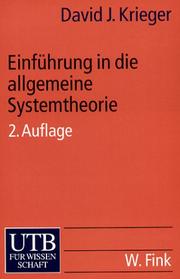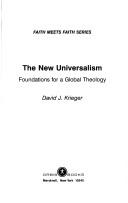| Listing 1 - 10 of 26 | << page >> |
Sort by
|

ISBN: 3770530926 9783825219048 9783770530922 3825219046 Year: 1998 Publisher: München: Fink,
Abstract | Keywords | Export | Availability | Bookmark
 Loading...
Loading...Choose an application
- Reference Manager
- EndNote
- RefWorks (Direct export to RefWorks)
Book
Year: 1991 Publisher: Maryknoll Orbis Books
Abstract | Keywords | Export | Availability | Bookmark
 Loading...
Loading...Choose an application
- Reference Manager
- EndNote
- RefWorks (Direct export to RefWorks)
Book
ISBN: 3290115763 Year: 1986 Publisher: Zürich Theologischer Verl.
Abstract | Keywords | Export | Availability | Bookmark
 Loading...
Loading...Choose an application
- Reference Manager
- EndNote
- RefWorks (Direct export to RefWorks)

ISBN: 0883447274 Year: 1991 Publisher: Maryknoll Orbis Books
Abstract | Keywords | Export | Availability | Bookmark
 Loading...
Loading...Choose an application
- Reference Manager
- EndNote
- RefWorks (Direct export to RefWorks)
Christianity and other religions --- Religions --- Religious pluralism --- Relations
Book
ISBN: 328002028X Year: 1991 Publisher: Zürich Orell Füssli
Abstract | Keywords | Export | Availability | Bookmark
 Loading...
Loading...Choose an application
- Reference Manager
- EndNote
- RefWorks (Direct export to RefWorks)
Fondamentalisme musulman --- Fondamentalisme religieux --- Fundamentalism [Islamic ] --- Fundamentalism [Religious ] --- Fundamentalisme [Godsdienstig ] --- Fundamentalisme [Islamitisch ] --- Fundamentalisms [Religious ] --- Fundamentalist movements [Religious ] --- Fundamentalistische bewegingen (Godsdienst) --- Godsdienstig fundamentalisme --- Integralisme [Islamitisch ] --- Integrisme [Islamitisch ] --- Intégrisme islamique --- Intégrisme islamique -- Aspect politique --- Intégrisme musulman --- Islamic fundamentalism --- Islamic integralism --- Islamism --- Islamisme --- Islamisme politique --- Islamisme radical --- Islamistes --- Islamitisch fundamentalisme --- Islamitisch integralisme --- Islamitisch integrisme --- Mouvements fondamentalistes (Religion) --- Mouvements islamistes --- Religious fundamentalism --- 845 Religie --- #GROL:Masscat --- #GROL:SEMI-141 Fund --- Fundamentalism, Religious --- Fundamentalist movements, Religious --- Religion
Book
ISBN: 3839428114 3837628116 1322079811 9783837628111 9783839428115 9781322079813 Year: 2014 Publisher: Bielefeld: Transcript,
Abstract | Keywords | Export | Availability | Bookmark
 Loading...
Loading...Choose an application
- Reference Manager
- EndNote
- RefWorks (Direct export to RefWorks)
After postmodern critique has deconstructed, decentered, and displaced order and identity on all levels, we are faced with the Humpty Dumpty question of how to put the pieces back together again. This book brings together the seldom associated discourses of hermeneutics, actor-network theory, and new media in order to formulate a theory of a global network society. Hermeneutics re-opens the question of unity in a fragmented world. Actor-network theory reinterprets the construction of meaning as networking. New media studies show how networking is done. Networks arise, are maintained, and are transformed by communicative actions that are governed by network norms that make up a social operating system. The social operating system offers an alternative to the imperatives of algorithmic logic, functionality, and systemic closure that dominate present day solutions to problems of over-complexity in all areas. The world of meaning constructed by the social operating system is a mixed reality in which filters and layers replace the physical restraints of space and time as parameters of knowing and acting. Society and nature, humans and non-humans come together in a socio-sphere consisting of hybrid, heterogeneous actor-networks. This book proposes reinterpreting hermeneutics as networking and networking as guided by a social operating system whose norms are based on new media. There emerges a theory for a global network society described by different concepts than those typical of Western modernity. »Der Band [beeindruckt] nicht nur durch seine Eigenschaft, konzise Überblicke herzustellen, sondern auch dadurch, dass in den einzelnen Abschnitten immer wieder deutlich der Bezug zur Hauptthese hergestellt und durch Vor- und Rückgriffe eine dichte Argumentation geführt wird. Die Klarheit und Nachvollziehbarkeit des Textes lässt ihn dabei als eine einführende Lektüre in die ANT und ihre Anwendungsgebiete ebenso geeignet erscheinen wie als Ausgangspunkt oder Argument einer fortgesetzten Methoden-Diskussion.« Solvejg Nitzke, MEDIENwissenschaft, 3 (2015)
Social sciences --- Actor-network theory. --- Social networks. --- Information society. --- Information technology --- Philosophy. --- Social aspects. --- Networking, Social --- Networks, Social --- Social networking --- Social support systems --- Support systems, Social --- ANT (Sociological theory) --- Social philosophy --- Social theory --- Théorie de l'acteur-réseau --- Sociology --- Information superhighway --- Interpersonal relations --- Cliques (Sociology) --- Microblogs --- Methodology --- Société numérique --- Herméneutique --- Société numérique. --- Théorie de l'acteur-réseau. --- Herméneutique. --- Hermeneutics; New Media; Actor-Network Theory; Philosophy; Digital Society; Network Society; Social Theory; Constructivism; Internet; Social Relations; Digital Media; Media Theory; Sociological Theory; Media Studies --- Actor-Network Theory. --- Constructivism. --- Digital Media. --- Digital Society. --- Internet. --- Media Studies. --- Media Theory. --- Network Society. --- New Media. --- Social Relations. --- Social Theory. --- Sociological Theory.
Book
ISBN: 1785277383 1785277375 1785277391 Year: 2021 Publisher: London : Anthem Press,
Abstract | Keywords | Export | Availability | Bookmark
 Loading...
Loading...Choose an application
- Reference Manager
- EndNote
- RefWorks (Direct export to RefWorks)
This book is not a critique of digital ethics but rather a hack. It follows the method of hacking by developing an exploit kit on the basis of state-of-the-art social theory, which it uses to breach the insecure legacy system upon which the discourse of digital ethics is running. This legacy system is made up of four interdependent components: the philosophical mythology of humanism, social science critique, media scandalization, and the activities of many civil society organisations lobbying for various forms of regulation. The hack exposes the bugs, the sloppy programming, and the false promises of current digital ethics, and, because it is an ethical hack, redesigns digital ethics so that it can address the problems of the global network society. The main idea of the book is that the social world of meaning is based on information, which, because of its relational nature, must be understood more as a common good than as private property. A digital ethics that relies upon humanistic individualism cannot address the issues arising from the global network society based upon information. This demands a complete revision of the philosophical foundations of current digital ethics by means of a redesign of ethics as a theory of governance by design.
Digital media --- Internet --- Moral and ethical aspects. --- Electronic media --- New media (Digital media) --- Mass media --- Digital communications --- Online journalism
Book
ISBN: 9783839442135 3839442133 9783837642131 3837642135 Year: 2018 Publisher: Bielefeld
Abstract | Keywords | Export | Availability | Bookmark
 Loading...
Loading...Choose an application
- Reference Manager
- EndNote
- RefWorks (Direct export to RefWorks)
The information age has brought about a growing conflict between proponents of a data-driven society on the one side and demands for protection of individual freedom, autonomy, and dignity by means of privacy on the other. The causes of this conflict are rooted in the modern Western opposition of individual and society and a self-understanding of the human as an autonomous rational subject with an inalienable right to informational self-determination. Andréa Belliger and David J. Krieger propose a theory of information as a common good and redefine the individual as an informational self who exists in networks made up of both humans and nonhumans. Privacy is replaced by publicy and issues of data use and data protection are described in terms of governance instead of government. Besprochen in: gmk-Newsletter, 9 (2019)
Information; Information Age; Privacy; Publicy; Actor-Network Theory; Digital Transformation; Network Society; Governance; Social Theory; Subjectivity; Big Data; Internet; Media; Social Relations; Digital Media; Sociology of Media; Media Theory; Media Studies --- Actor-Network Theory. --- Big Data. --- Digital Media. --- Digital Transformation. --- Governance. --- Information Age. --- Internet. --- Media Studies. --- Media Theory. --- Media. --- Network Society. --- Privacy. --- Publicy. --- Social Relations. --- Social Theory. --- Sociology of Media. --- Subjectivity. --- Information society --- Privacy, Right of --- Internet --- Social aspects
Book
ISBN: 3531432389 Year: 2006 Publisher: Wiesbaden : VS Verlag für Sozialwissenschaften,
Abstract | Keywords | Export | Availability | Bookmark
 Loading...
Loading...Choose an application
- Reference Manager
- EndNote
- RefWorks (Direct export to RefWorks)
Multi
ISBN: 9781785277382 9781785277375 Year: 2021 Publisher: London Anthem Press
Abstract | Keywords | Export | Availability | Bookmark
 Loading...
Loading...Choose an application
- Reference Manager
- EndNote
- RefWorks (Direct export to RefWorks)
| Listing 1 - 10 of 26 | << page >> |
Sort by
|

 Search
Search Feedback
Feedback About UniCat
About UniCat  Help
Help News
News